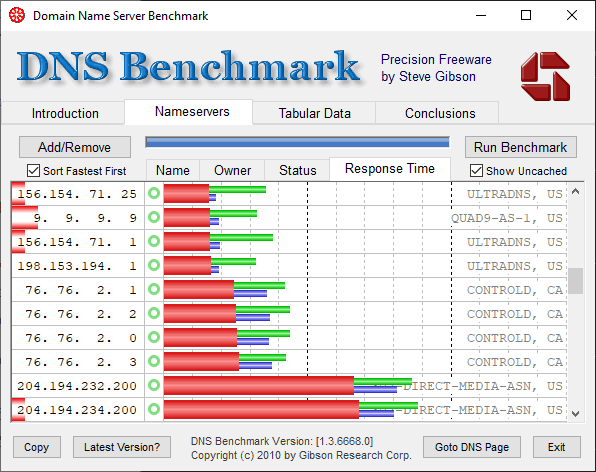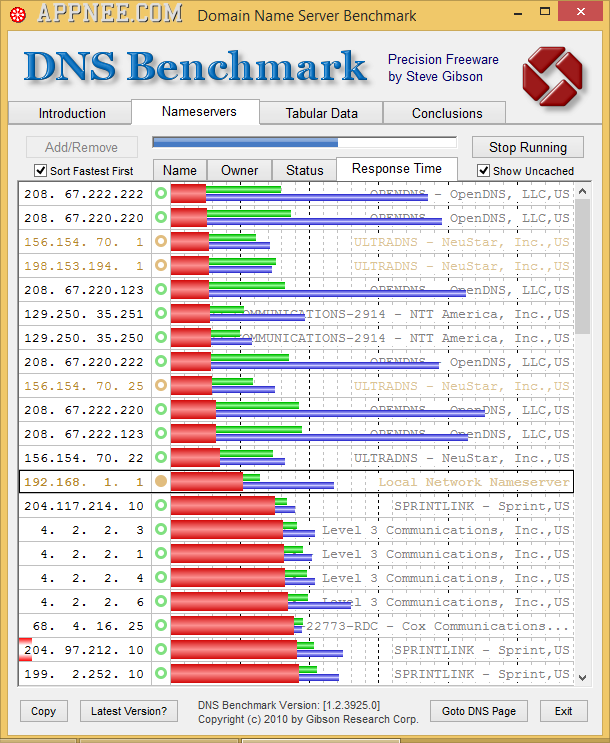

You would pick the one that seemed to be faster than the others. However, making a selection as to which alternate DNS server to use is somewhat subjective.

It would be a good idea to try out several options before settling on the one to stick with.

But there is a good chance it will provide better performance than whatever default DNS option is provided by your ISP. Picking at random one of these public DNS servers might not provide the most optimal DNS resolution speed.
Dns benchmark online free#
Consider using one of the free and open DNS servers rather than your ISP's. The first and easiest option to improving DNS performance is to switch to an alternate DNS server for performing lookups. Often you will piggyback on your ISP's DNS server(s) by default, but this is usually not the most efficient option. The DHCP service can be configured to hand out a preferred DNS address to devices as they receive their IP address lease. For enterprise networks, this will be most often a dedicated DHCP server or appliance. For most home users and small office environments, this will be on your wireless access point (WAP). Often performance improvements can be realized just by changing the DNS lookup server address being used.įor most networks, the DNS server lookup address is defined on your main network management device where the Dynamic Host Configuration Protocol (DHCP) is being performed. There are several steps you can take to optimize your DNS to get better performance. There are DNS encryption options available which can improve the privacy protection of online activities. While many have opted into deploying a VPN for online interactions and a majority of the sites visited are now protected by TLS encryption (i.e., HTTPS), there are still many circumstances where DNS queries occur outside of these protections and they are subject to being viewed by others. Both adversaries as well as your own internet service provider (ISP) may be monitoring your online activities. DNS filtering offers a means to limit or restrict access to some of these problematic concerns.įinally, there is also a need to be aware that communication eavesdropping is increasing. There is also growing concern among many that there are malicious sites or unacceptable content online that should be filtered. Tuning DNS resolution can improve performance and result in much faster internet interactions. There is a wide range of reasons why DNS might be sluggish, ranging from an over-taxed server being used by too many users to insufficient memory to complicated iterative queries. Instead, it’s the resolution of DNS that is putting a glitch in your giddy up. Most Internet users don't realize that often a website or other service that seems slow to respond is actually working fine. A frustrating part of surfing the Internet is slow and sluggish domain name system (DNS) resolutions.


 0 kommentar(er)
0 kommentar(er)
